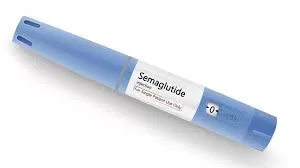Introduction
The significance of fostering a healthy gut microbiota has become a focal point in gastrointestinal research. Among the many strategies to achieve this, the use of probiotics has gained considerable attention. Probiotics, which include supplements and various fermented foods, are believed to support gut health, particularly during antibiotic treatments. Despite the widespread use of probiotics, recent research suggests that their efficacy in children undergoing antibiotic treatment may be limited.
Study Overview
A recent randomized clinical trial explored the effects of probiotics on the gut microbiota of children receiving antibiotics. Participants were randomly assigned to receive either a placebo or a multispecies probiotic formulation, which included eight strains from five different genera. The study tracked 88 children (44 in each group) who adhered to the protocol, collecting at least two stool samples over the course of the study from February 2018 to May 2021.
Fecal samples were collected at four key points: the beginning of antibiotic use, the end of antibiotic use, the end of the study, and one month after treatment. These samples underwent 16S ribosomal RNA gene sequencing to analyze the microbiota.
Key Findings
The study found no significant differences in alpha diversity (a measure of microbial variety within a sample) between the probiotic and placebo groups at the first three time points. However, one month after intervention, the placebo group exhibited higher Shannon and inverse Simpson diversity indices compared to the probiotic group. Additionally, beta diversity (a measure of microbial variety between samples) did not significantly differ at any time point.
Interestingly, three of the five probiotic genera showed higher levels during supplementation, but this effect was only transient, disappearing after one month. A small number of children in both groups experienced diarrhea, with slightly fewer cases of antibiotic-associated diarrhea (AAD) in the probiotic group.
Gut Microbiota and Clostridioides difficile
Beyond general microbiota health, probiotics are also studied for their potential to prevent Clostridioides difficile infections (CDI), a severe complication of antibiotic use. One innovative treatment for recurrent CDI is Ferring’s fecal microbiota live-jslm (RBL) product, the first FDA-approved single-dose treatment to prevent recurrent CDI in adults.
In the PUNCH CD3 trial, participants receiving RBL showed improvements in gut microbiota composition and diversity within just one week post-administration. Researchers used deep shotgun sequencing to reveal how RBL influenced the microbiome through clonal engraftment, transferring a median of 10 species from the RBL dose to the participants.
Future Directions
The study’s investigators emphasized the need for future research with larger and more homogenous populations, focusing on the functional aspects of microbiota and its association with clinical outcomes. They highlighted the importance of understanding whether transient effects on microbial composition and diversity play a mechanistic role in protecting against antibiotic-induced adverse effects, including AAD.
Conclusion
While probiotics are widely used with the hope of supporting gut health during antibiotic treatments, recent findings suggest their benefits may be limited in the pediatric population. Further research is essential to fully understand the potential of probiotics and other microbiota-based therapies in preventing and managing antibiotic-associated complications.
References
- Behnsen J, Deriu E, Sassone-Corsi M, Raffatellu M. Probiotics: properties, examples, and specific applications. Cold Spring Harb Perspect Med. 2013;3(3)
. Published 2013 Mar 1. doi:10.1101/cshperspect.a010074
- Dierikx TH, Malinowska AM, Łukasik J, et al. Probiotics and Antibiotic-Induced Microbial Aberrations in Children: A Secondary Analysis of a Randomized Clinical Trial. JAMA Netw Open. 2024;7(7)
. doi:10.1001/jamanetworkopen.2024.18129
- Abene S. Impact of Live Biotherapeutic Products on Gut Microbiome in Recurrent C difficile Infections. Contagion Live.












